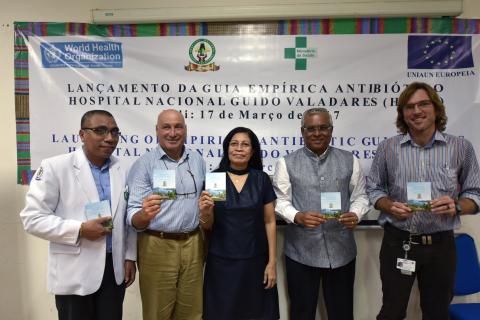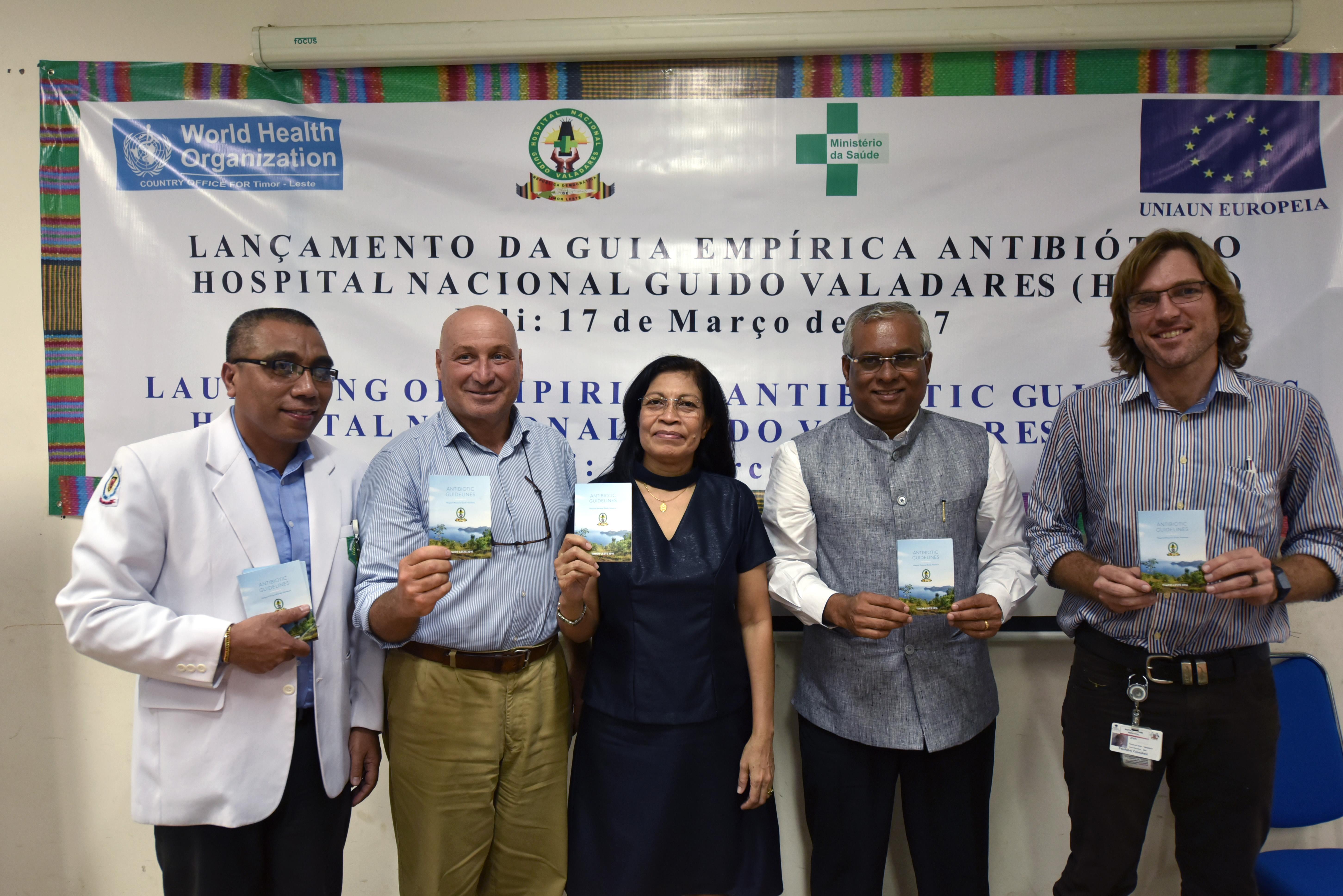
In addition to being one of first countries to join the EU-Luxembourg-WHO Universal Health Coverage Partnership (UHC Partnership), Timor-Leste has also been highly active in leveraging the Partnership to bolster technical support in the health system.
The UHC Partnership supported the development of a set of antibiotics guidelines that were adopted at the national level in January 2017. Antibiotics are critical in the management of infection, and can lead to a significant reduction in morbidity and mortality, especially since emerging antimicrobial resistance has been identified as global challenge by World Health Organization (WHO). “These guidelines will help in the rational use of medicines by physicians, and strengthen the national prescription system”, says Dr. Rajesh Pandav, WHO Representative in Timor-Leste. « This is an important step towards preventing antibiotic resistance. » In fact, a large-scale campaign was rolled out in 2016 through the UHC Partnership to raise awareness on antimicrobial resistance, using audio-visual material, posters, videos, social media posts, and messages from high-level officials.
This year will also mark the definition of a new health financing strategy in Timor-Leste. The Ministry of Health is especially keen on adopting a new strategy as soon as possible, as the country’s primary source of income – oil – will eventually run out. The Government of the country is therefore committed to intensify efforts in exploring how to best spend the 17 billion US dollars from oil income that have been put in a fund. A health financing policy option document was prepared in advance with the intent to outline a set of core health financing policy questions and propose feasible policy pathways for Timor-Leste to achieve its policy goals of equity and quality of UHC. The policy dialogue continues, ensuring that what transpired in the previous phase is now reflected in a practical strategy. The new health financing strategy, which is being developed with technical support from the UHC Partnership, will provide guidance on how to optimize the funds in the health sector according to the three main functions of revenue raising, pooling and purchasing.
A review of the National Health Sector Strategic Plan is also ongoing in 2017 with technical support from health development partners, including critical backing from WHO through the UHC Partnership. The revision will ensure that the twenty years’ plan reflects the changes occurred, at national and international level, since its inception in 2011 and supports the health sector contribution in backing the country efforts to achieve the SDGs. The plan will incorporate a way forward for evaluating and monitoring health-related Sustainable Development Goals (SDGs). Baseline indicators oriented around the two dimensions of UHC, service delivery and financial protection, are now in the process of being identified in Timor-Leste.
Among other activities implemented thanks to the UHC Partnership, Dr. Pandav still emphasizes the process of phasing out funding from Gavi (the global Vaccine Alliance which brings together public and private sectors) in 2016. Along with other health development partners, WHO has facilitated the definition of a transition phase strategy and its implementation through 2017 focused at enhancing capacities for country structures to take over of all vaccine related functions. This is one case of joining partners’ efforts in a harmonized and more efficient support to the health sector. Coordination meetings co-chaired by the WHO and the European Union (EU) geared at health partners are conducted on a monthly basis. This will allow aligning different health initiatives towards common goals defined in the national health sector strategic plan.
Above-mentioned activities portray some examples of what is currently in the roadmap of Timor-Leste’ endeavors to strive for UHC. All those underpin health-related SDGs goals to be well absorbed by health authorities in Timor-Leste while involving inter-sectoral work in a crescent move. The UHC Partnership will continue its role as broker and convener to the decision-making process by providing technical expertise in specific health system strengthening areas. Dr. Pandav summarizes “Our goal is to support the Ministry of Health to the best of our abilities. One of our key strategies is to find ways to best leverage each partners’ strengths, and to facilitate dialogue that will yield concrete results”.
